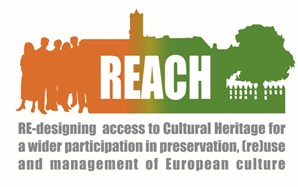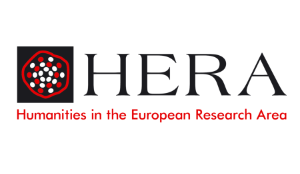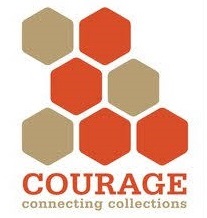
The three-year REACH project will establish a Social Platform as a sustainable space for meeting, discussion and collaboration by a wide-ranging network of development bodies, tourism, education, creative industries, cultural heritage professionals, academic experts, arts practitioners, professionals in archives and galleries, associations and interest groups representative of non-professionals and local societies, and policy-makers – all those with a stake in research in the field of culture and CH.
The REACH Social Platform’s activities will have a twofold scope:
– Support: to map and provide analysis of research results achieved in previous programmes, to identify current and emerging research trends, and to offer authoritative new knowledge of the CH field to the European Commission and policy makers;
– Coordination: to offer benefits to its participants, expanding knowledge of complementary research domains, and of new participatory research methodologies, generating opportunities for cooperation, offering pathways to wider user engagement with research outputs.
In the context of radical social changes taking place at global levels, Europe faces a serious challenge: the need for its citizens to live together in peace and mutual respect and to value and enjoy the diversity of cultures, which they bring to their respective societies. The REACH project is based on the proposition that CH plays an important role in contributing to social integration in Europe, and that a fuller and more detailed picture of the range, type and impact of research and participatory research methodologies, current and future, associated with these subjects will further enhance their potential for social good.

Marie Skłodowska-Curie Individual Fellowship (MSCA IF) podporuje další vzdělávání a profesní růst výzkumných pracovníků, kteří již několik let působí např. v rámci domácí univerzity a u nichž se předpokládá, že již získali zkušenosti ve svém oboru. Profesní i osobní rozvoj akademiků je zajištěn především podporou jejich mezinárodní mobility, ať už jde o krátkodobé, či dlouhodobé stáže.
Právě spolupráce se zahraničními výzkumnými centry je hlavní podmínkou získání grantu – prostředky na výzkum nemohou výzkumní pracovníci získat v zemích, ve kterých dlouhodobě žijí, pracují nebo studují. Grantu lze využít také jako pomoci při návratu výzkumníků do Evropy nebo pro návrat ke kariéře např. po mateřské dovolené.
Prestižní grant se podařilo získat dvěma akademickým pracovníkům Filozofické fakulty Univerzity Karlovy – doktorce Anně Čermákové z Ústavu Českého národního korpusu (míří na University of Birmingham) a doktoru Janu Kozákovi z Ústavu filozofie a religionistiky (míří na University of Bergen).

Lenka Hlávková examines polyphony composed in the 14th and early 15th centuries, which as an ‘archaic’ practice remained an integral element in Utraquist liturgical books up to 1600. Copied alongside the compositions of leading European composers (Josquin, Isaac, Agricola etc.) or local pieces composed in the style of Franco-Flemish polyphony, this music of the past raises questions about the functions and meanings of such old material in the spiritual, intellectual and social life of late medieval society in Bohemian regions.
In cooperation with David Eben, the leading chant specialist active today in the Czech Republic, the roots of the Utraquist liturgical traditions and their relationship to liturgical reform in 14th-century Prague will be explored. Around the mid-14th century, Prague archbishop Ernestus of Pardubice implemented a chant reform intended to purge the liturgical repertory of the diocese from contaminating ‘modern’ influences.
At the same time, new feasts were introduced (e.g., the Visitation) for which new chants were needed. The chant repertory created for these occasions consciously draws on traditional models of liturgical music.
It therefore provides an ideal point of departure for studying compositional and/or creative strategies designed to evoke or appropriate the past within the late medieval liturgical context, offering direct points of contact with research questions posed by the Utrecht team concerning the ‘devotio moderna’.
Jan Ciglbauer focuses on newly composed monophonic compositions (‘cantio’, ‘Leich’) derived from older models and associated with Central European universities, monasteries and Latin schools. It is still not fully understood why in the time around 1400 a large corpus of new monophonic compositions was written in Bohemia by local authors who drew inspiration not only from plainchant, but also from the 13th-century Parisian conductus (by then very much ‘music of the past’).
Since Paris University was a prominent model for Prague University in its early years, a thorough analysis of music and its social context should reveal how far the musical culture of 13th-century Paris remained present in the devotional monophonic practice of Prague intellectuals some 100-200 years later.
This cluster of research topics invites co-operation with both the Cambridge team (13th-century Paris) and the Utrecht team, not least to explore further the recently uncovered links between devotional repertories of the Low Countries and their possible Central European precursors.
(see: http://www.soundme.eu/)

COURAGE will create a comprehensive online database (digital registry) of existing but scattered collections on the histories and forms of cultural opposition in the former socialist countries and thereby make them more accessible.
It will analyse these collections in their broader social, political and cultural contexts. The general aim of this analysis is to allow for the expanded outreach and increased impact of the collections by assessing the historical origins and legacies of various forms of cultural opposition.